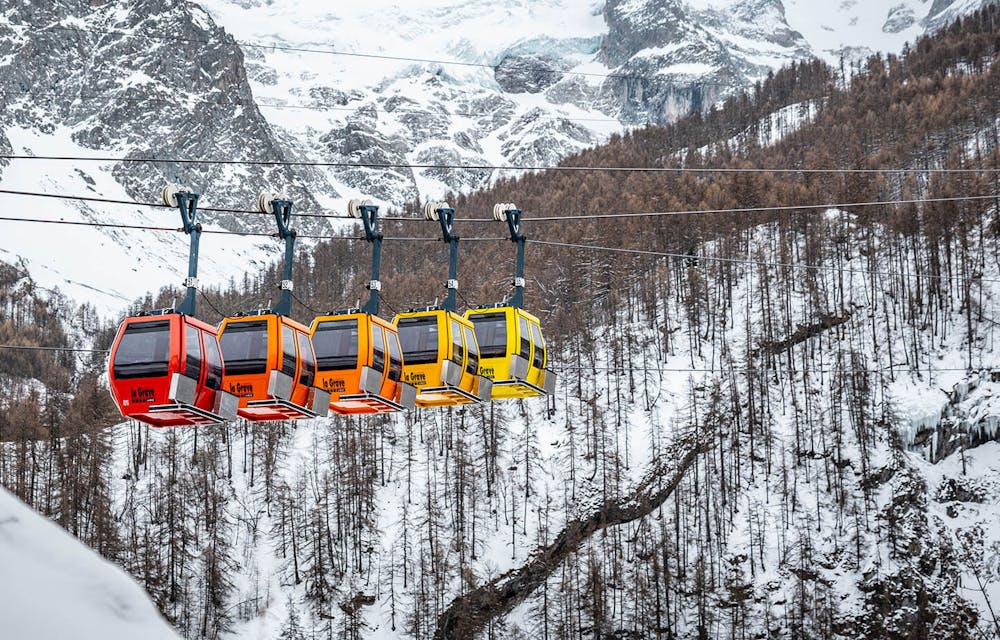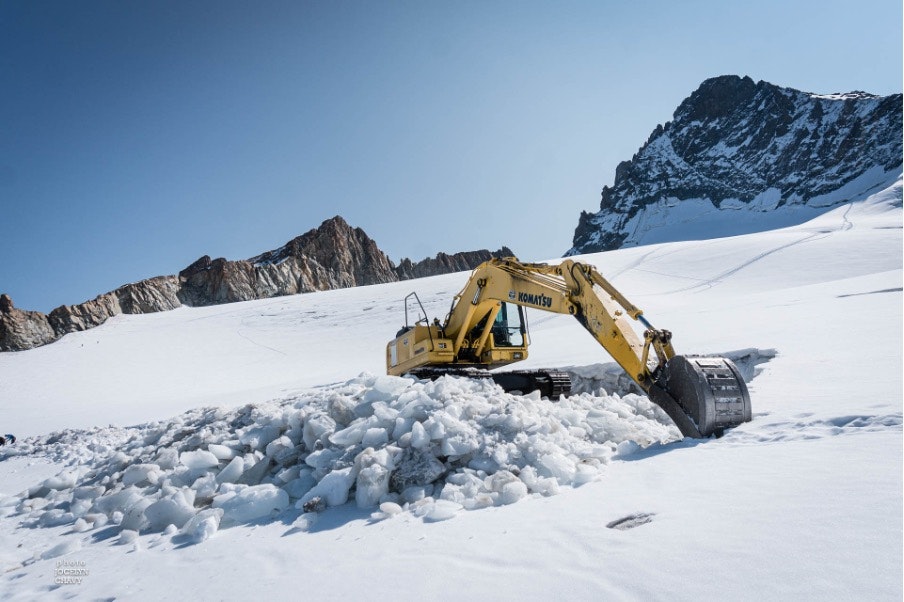
Can bankers save mountains?
There are few places on earth where climate change is felt as dramatically as in the mountains. Increased rockfall, melting glaciers and biodiversity loss are only examples of the consequences of global warming. But what does this have to do with banking?
Mountain enthusiasts are on the front line of climate change. The seasonality of our activities is being totally disrupted. Increasingly dangerous conditions and shorter skiing seasons are now the “new normal”. This summer’s heatwaves and their tragic outcomes have shown more than ever our urgent need to act. But, as brutal as it may sound, fighting global warming needs more than a shift in individual behaviours, it needs money. Lots of money…
When I started my investment banking career in 2009, the financial industry was in the midst of the subprime crisis and sustainable investing was at best ignored and most often frowned upon. Climate change was an intangible concept left to scientists and activists and only a handful of bankers believed the financial industry was failing to support sustainable societies.
To fight climate change we need money from governments as well as banks and pension funds
Times have changed. The voice of the climate activism movement is finally being heard. I became hopeful when one of the most conservative climate-sceptic investment managers I know told me he became a vegetarian and bought an electric car to help fighting global warming. Nowadays, you can barely have a conversation in the financial industry without mentioning climate. The “United Nations Climate Change Conference” (or COP21) in 2015 saw 196 countries signing the “Paris Agreement”, setting a goal to limit global warming to 1.5 °C. This was a landmark in the fight against climate change.
It unleashed a gigantic workstream from the financial community as it became clear that the 1.5 °C target would never be reached only with public, i.e. government money. Money from banks and other financial institutions like pension funds or insurance companies is needed to finance the transition to a low carbon economy on a global scale. Since then, most major financial institutions have made various commitments to drastically cut fossil fuels financing and pledges to get to “net zero” emissions by 2050. For example, UBS has committed in 2019 to stop financing new coal-fired power plants globally.
So why is so much money still flowing to fossil fuels companies?
Firstly, there is still a lingering lack of climate education within the financial community. Secondly, it is more complex than it sounds to change the way investing works. Despite all the apparent efforts the financial community might put into climate transition, banks and investors are still largely driven by performance. If a financial institution wants to divest from fossil fuels, it will carry out a thorough assessment of the potential impacts on its performance objectives. As an example, a pension plan simply cannot divest from fossil fuels without ensuring first its pensioners will still receive their monthly allowances.
And let’s face the reality, there is sometimes a lack of honesty from financial institutions. It has unfortunately led to increasing cases of greenwashing where financial firms’ actions are not aligned with their sustainability claims.
For example, after being very vocal about their climate ambitions at COP26 at the end of last year, Deutsche Bank helped Australian coal mining giant Yancoal to raise USD 300 million to finance their mining activities. Ironically, the German police raided the one of the bank’s subsidiary offices in June after its former sustainability chief raised greenwashing concerns to the authorities…
What can be done by the financial community to save mountains?
I think two main factors are directly affecting mountains: global ecological changes such as climate change which require efforts from the entire financial community but also stress on local ecosystems caused by specific projects that can be financed by banks, local authorities or institutional investors. It’s one thing to push financial institutions to stop funding fossil fuel companies but they also have to review their policies when it comes to financing projects with a high potential on mountains’ ecosystems. Is it right to continue financing the construction of new ski resorts causing irreparable damages to the landscape and local biodiversity? I believe the benefits for society would be higher if they would start financing eco-tourism or nature restoration projects instead.
An emblematic example is the financing of the new “Girose glacier” cable car in the off-piste ski resort of La Grave where huge excavators are literally shovelling the glacier to extend the skiing area. I saw it with my own eyes whilst mountaineering in the area and was utterly shocked. Glaciers are suffering enough from global warming and do not need additional pressure based on pure financial considerations.

A huge excavator shovelling the Girose glacier - Source: alpinemag.fr
What can we do at an individual level?
The truth is, we are all investors. We all have saving accounts with (more or less) money and are contributing to pension plans and the stakes are high that your pension’s savings are invested in highly emitting companies. When I was working in the UK, I was given the choice of having my pension money not invested in fossil fuel companies. It’s a real shame Swiss pension plans do not offer the same option.
We also shouldn’t forget that banks are commercial organizations. If they see risks of loosing clients and therefore decreasing their revenues, they will change their investment policies and product offering. Next time you talk to your banker, ask him or her how your savings are invested and if your bank offers climate-friendly investment choices. And the choice is yours to move to greener pastures…
Further readings and sources:
What is the Paris Agreement?, UNFCCC
Sustainability in the Swiss retail banking sector, WWF Switzerland, 2021
Who Is Still Financing the Global Coal Industry?, Urgewald, February 2022
Bank group accused of exploiting loopholes and ‘greenwashing’ in climate pledge, The Guardian, June 2022
DWS is in Deep Doo-Doo Over Greenwashing – Here's Why, Morningstar, June 2022
Téléphérique de la Grave : quel modèle économique pour le projet d’un troisième tronçon ? Montagnes Magazine, May 2022